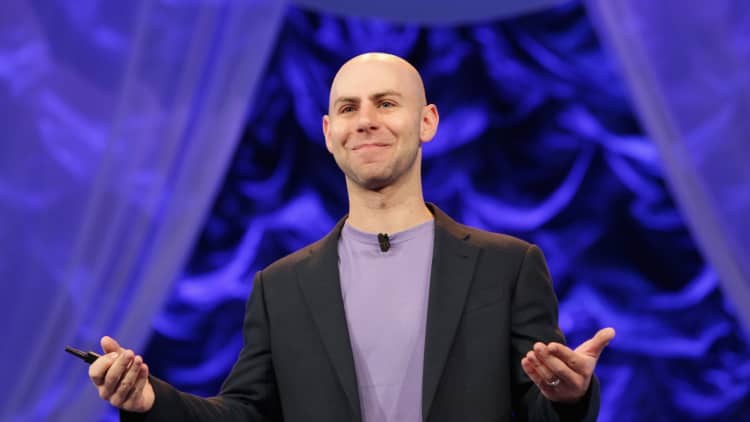The idea of motivating people by promising bonuses or threatening to get fired if they don't perform is so yesterday. To be precise, it dates back thousands of years to ancient Greece.
That's according to renowned psychologist Tory Higgins, the director of the Columbia Business School Motivation Science Center.
But from his decades of researching motivation, decision making and social development, Higgins tells CNBC Make It there is a more efficient way of understanding what motivates you, which can make you more successful in reaching your goals.

In a 2006 paper published in the American Psychological Association "Psychological Review," Higgins argues that instead of just understanding life through the perspective of traditional "hedonic motivation" — or influencing people using the human tendency to favor pleasure and reject pain — we need to understand this motivation doesn't apply to all situations in life.
Instead, he proposes that people motivate themselves by understanding when to switch between two motivational mindsets called "promotion" and "prevention" systems.
In the promotion mindset, your mind is motivated by making progress, growth and moving forward. But if you don't achieve what you aim for, you feel like a failure or like you wasted your time.
On the other hand, your mindset in the prevention system is motivated by doing whatever it takes to feel safe and secure rather than take a risk and fail. Higgins points out people in prevention closely relate to the saying, "If it ain't broke, don't fix it."
"Every human has both systems, that's a universal," Higgins says, "but there will be times when a person is more one system than the other."

Higgins says different countries, societies and work environments have great influence on which mindset you are better off using to motivate yourself.
"Generally speaking, there is always some advantage of being the kind of person that matches the mindset your culture values more," he says.
Higgins' research has found that because Americans at societal level value extroversion, people who most often use a promotion mindset have higher levels of well-being and mental health.
By recognizing which motivational mindset comes more naturally to you, you can also tell if you are a good fit for a company just from reading its mission statement. For example, venture capitalists, developers and much of Silicon Valley value self-starters and as a result, favor people with promotion mindsets.
Higgins gives the example of preparing for a work presentation. In prevention, you say, "I better really work hard in preparing for this and put in a great effort or otherwise I might fail." In this state of mind, he adds, you keep yourself motivated by imagining the negative outcome

When in promotion, you make sure to go above and beyond with your presentation, feeling frustrated or discouraged if you give anything less than your best. Higgins adds that a manager who is often in a promotion mindset will say, "We can't just be satisfied with what we accomplish, we can't sit on our hands and just keep doing what we're doing, we need to compete and be better."
"In an ideal world, people would understand they need to be in promotion or prevention for certain activities and perform maximally," Higgins says. But then again, we're not perfect.
To better recognize what motivates you, Higgins says you should be extra aware of what actions are required of you.
"If your job encourages you to be creative or innovative, it's good to be in promotion which will let you be open to new ideas, getting eager and enthusiastic," he says. "If what you're doing requires being analytical, if it's important that you be logical, well-reasoned and realistic, you want to be in prevention."
Like this story? Like CNBC Make It on Facebook.
Don't miss:
Harvard's longest study of adult life reveals how you can be happier and more successful
7 steps you can take to be happier with your career


